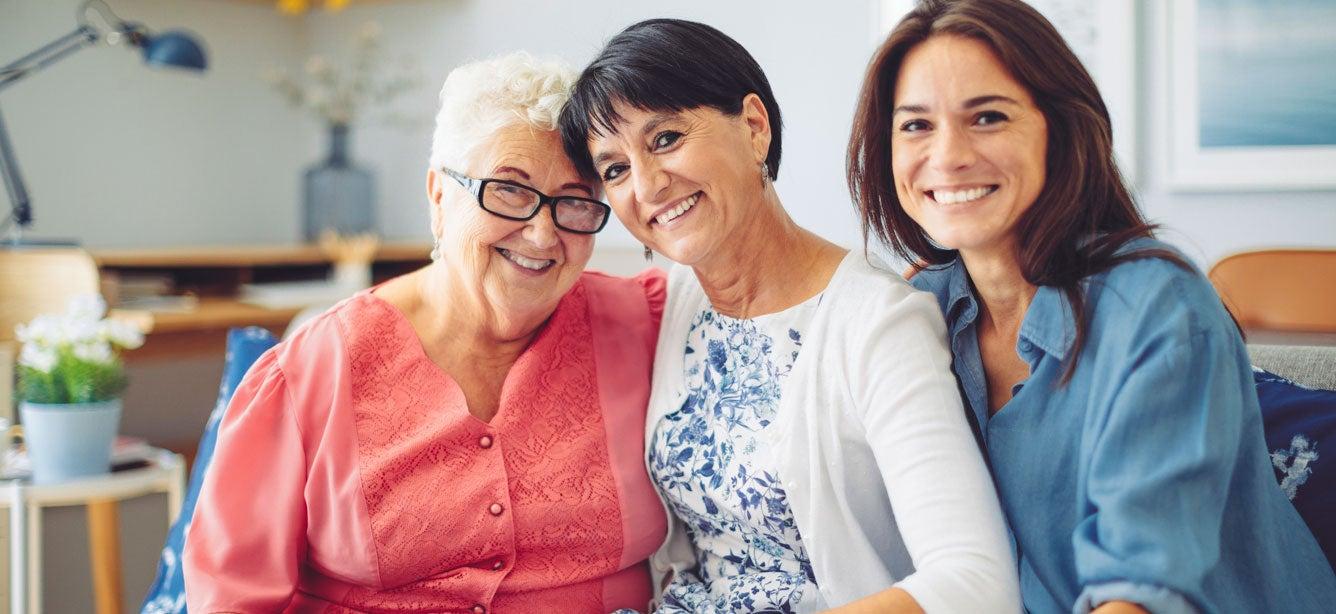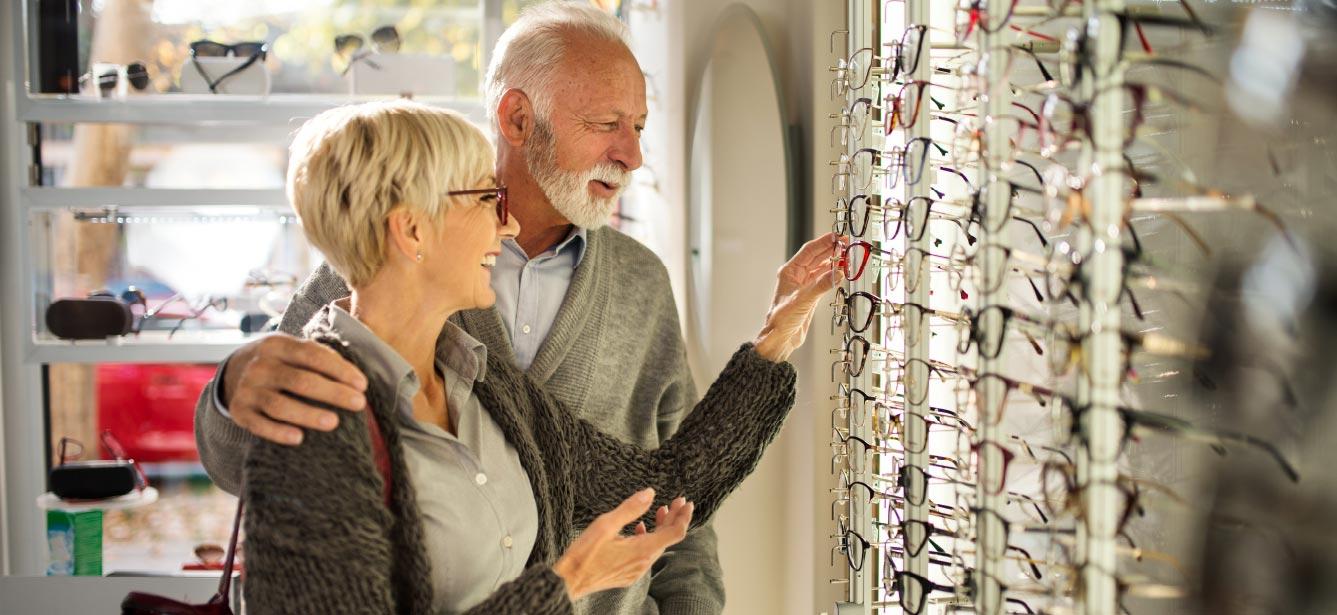Helping Moms with Low Vision Maintain Their Important Family Roles
6 min read

Is your Mom experiencing low vision? If so, it's very likely she feels frustrated, scared, embarrassed, and sad. Imagine how you would feel if you could not experience the joy of seeing your children’s faces, their performances, their participation in sports events, their art work, and even to read to them. Many women, approximately 20% of those 60 and older, are facing this reality. Although there are many losses associated with low vision, there are things you can do to help your mom (and grandmothers) continue to engage and enjoy time and activities with her children and grandchildren.
Vision loss, and even the diagnosis of an eye disease, can be traumatizing for the individual experiencing it. Age, experience, and a person's personality and level of self-esteem, all play a key role in an individuals ability to respond to life’s challenges, including vision loss. However, it can and is often just as difficult for the loved ones around them. Learning strategies to help them cope, while also developing specific techniques to promote safety, confidence, and increased independence are an important role the loved one plays.
Visual impairments can and often create feelings of immense loss or grief. Consider the many losses experienced.
A person might not be able to clearly see or recognize the faces of those they love, no longer feel confident handling money or to manage their finances, read mail or see the computer or phone screen, find things easily, eat without paying close attention, walk without fear of falling, or drive or get around independently. This would be challenging for anyone, and when you add the other challenges of aging such as balance issues, hearing loss, and memory lapses it can feel overwhelming. In addition to managing one’s own personal life and home, getting out and engaging in community activities can be frightening for those with significant visual impairments. There are so many unknowns. People are afraid of embarrassing themselves, being treated poorly or disrespectfully by others, being ignored, and even getting hurt.
What you can do to help your mom feel like a capable and an important part of the family unit:
- First, start by discussing what she can and cannot see. What is she having challenges with? What is she afraid to do?
- Ask what ways she has tried to adapt. Most people are very innovative and figure out creative ways to solve many problems, including coping with vision loss. You might even brainstorm some ideas on making things more adaptable.
- Ask how you can assist. It is likely in the early days and possibly as vision declines more help may be needed, especially with things like transportation to appointments and stores, medication management processes, and maybe even cooking and house-keeping. However, encourage her to try using adaptive strategies to do these tasks.
- Check in more regularly and let her know you are available. No one wants to be a burden on their family members or to become dependent on them. Assuring your mom that you really want to listen and help figure out how to keep her safe and independent really will help her learn to cope.
- Discuss options for training. To find low cost and often free services for those 55 and older by visiting TimeToBeBold.org. There's a list of resources available from the Department of Education Rehabilitation Services Administration.
- Offer your arm when out on errands, especially in unfamiliar areas and where the sidewalk or ground may not be even.
- Provide some verbal information about surroundings, such as we are approaching some steps going down, your friend Mary is approaching us, the bank teller is reaching out for your identification, etc. This information can be provided in very subtle ways, but be very helpful in reducing embarrassment and accidents.
- Discuss what could happen in a variety of social / community situations. You want to find out how your family member would like to handle the situation. Are there situations where they want to assert themselves and other times when they are okay with you helping? What method do they prefer to use to assert their rights?
- Ensure the individuals the person who is visually impaired is communicating with, such as doctors, store clerks, servers in restaurants, bank tellers, etc., speak directly to them. There is a tendency of these individuals to speak to the sighted person or loved one. As the loved one, you can facilitate proper communication. For example, in a restaurant, you might say, "Mom, what do you want to order?" If the server asks you what they want to order. You can also be even more subtle by turning your gaze to the person who is visually impaired, so the other person knows you expect them to talk to their patient, customer, etc.
- Not being able to read a menu, forms, signs, etc., in public can be frustrating and embarrassing. Develop plans with your loved one about how they want to handle forms, sign documents, order meals, etc.
Grandmothers are such an important person to their grandchildren. Vision loss can impact everything about the grand-parent experience. Yet, it can also lead to some wonderful new experiences for both.
To help ensure she continues to feel like a grandma, explain to the grandchildren what the eye condition is and how grandma’s vision is impacted. It is best if grandma explains this herself, but if she does not yet feel confident doing so, then you can help.
Use phrases like the following when communicating about your grandmother's eye condition:
- Grandma can’t see well. She can see ___. She can’t see ___.
- I need you to bring things closer.
- I need you to use your yes and no words instead of shaking your head.
- I need you to put things back in the same place.
- I would like you to describe your art work.
- I’d like you to read to me or tell me a story.
- I’ll tell you a story instead of reading a book to you.
- I have to hold the book closer or use a magnifier to read to you or see your picture.
- I’d love to hear all about your performance.
- Tell me more about …
- Let me take your arm to walk with you.
Vision loss impacts the whole family. But, with the right attitude of all, understanding, patience, and use of some basic helpful information and assistance everyone can learn to cope, and moms and grandmothers can continue to be an important part of the family.
Resources
1. Independent Living Older Individuals who are Blind Technical Assistance Center. (2021). Lessons for Living. Found on the Internet at www.OIB-TAC.org.
2. American Printing House for the Blind. (2021). Getting Started 2020: A Guide for People New to Vision Loss - VisionAware. Found on the Internet at https://secure-web.cisco.com/1k-pXhwrLDOGHW6ykHlDz-pFxqu2dcqD6lBbfu-O9-Lr8PyqFzoZlcN40tfQsN1GOYfHB2J6iuG_gVcKlNMmQs1AE4aFbNuDNMAlvVfB1kmD94Hfa_vef93EA5-UKg9yVNXD_9wKvY3WKu_g8L7DZL7q1s0KQZ0FcXXiW5c170QuwMa-I1KZeOQR0wAaRVUXhFSINTFNBvCcX7vRZDhavWUbCL41orXuRuFbECTj3Uw-j0Uqjaaf3Khz6Z8lxX-avoe-UeqQUx96w2G0xQJcQ-dNJhdUD1iQP412B4_sQU-NicrUziYPa0H65khv9-X7M/https%3A%2F%2Fvisionaware.org%2Fgetting-started%2F
3. Specialized services and training for individuals 55 and older with low vision and blindness. Found on the Internet at www.OIB-TAC.org or www.TimeToBeBold.org.


